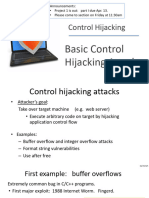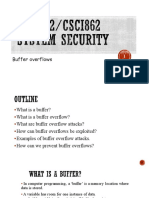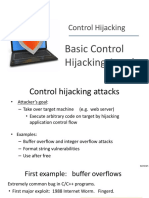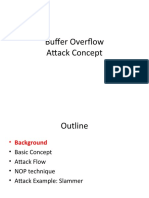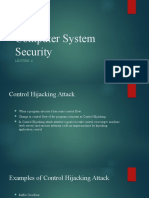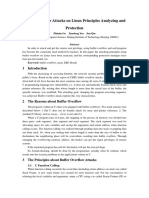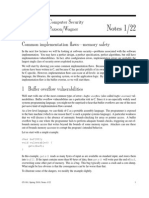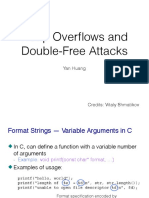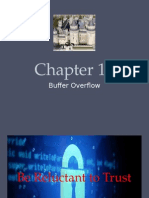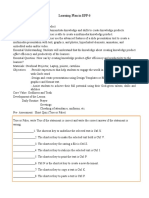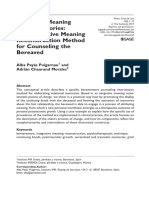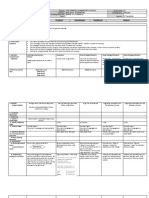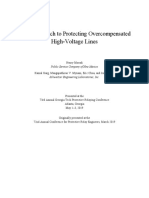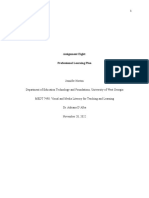0% found this document useful (0 votes)
3 views29 pagesModule Program Vulnerabilities
The document discusses various program vulnerabilities in computer and network security, highlighting categories of attacks such as control-flow, data, and code injection attacks. It explains how memory errors, particularly in languages like C and C++, can be exploited through techniques like buffer overflows and heap overflows. The document also outlines defenses against these vulnerabilities, including stack protection mechanisms, address space randomization, and the importance of using type-safe programming languages.
Uploaded by
dairwabarCopyright
© © All Rights Reserved
We take content rights seriously. If you suspect this is your content, claim it here.
Available Formats
Download as PDF, TXT or read online on Scribd
0% found this document useful (0 votes)
3 views29 pagesModule Program Vulnerabilities
The document discusses various program vulnerabilities in computer and network security, highlighting categories of attacks such as control-flow, data, and code injection attacks. It explains how memory errors, particularly in languages like C and C++, can be exploited through techniques like buffer overflows and heap overflows. The document also outlines defenses against these vulnerabilities, including stack protection mechanisms, address space randomization, and the importance of using type-safe programming languages.
Uploaded by
dairwabarCopyright
© © All Rights Reserved
We take content rights seriously. If you suspect this is your content, claim it here.
Available Formats
Download as PDF, TXT or read online on Scribd
/ 29


